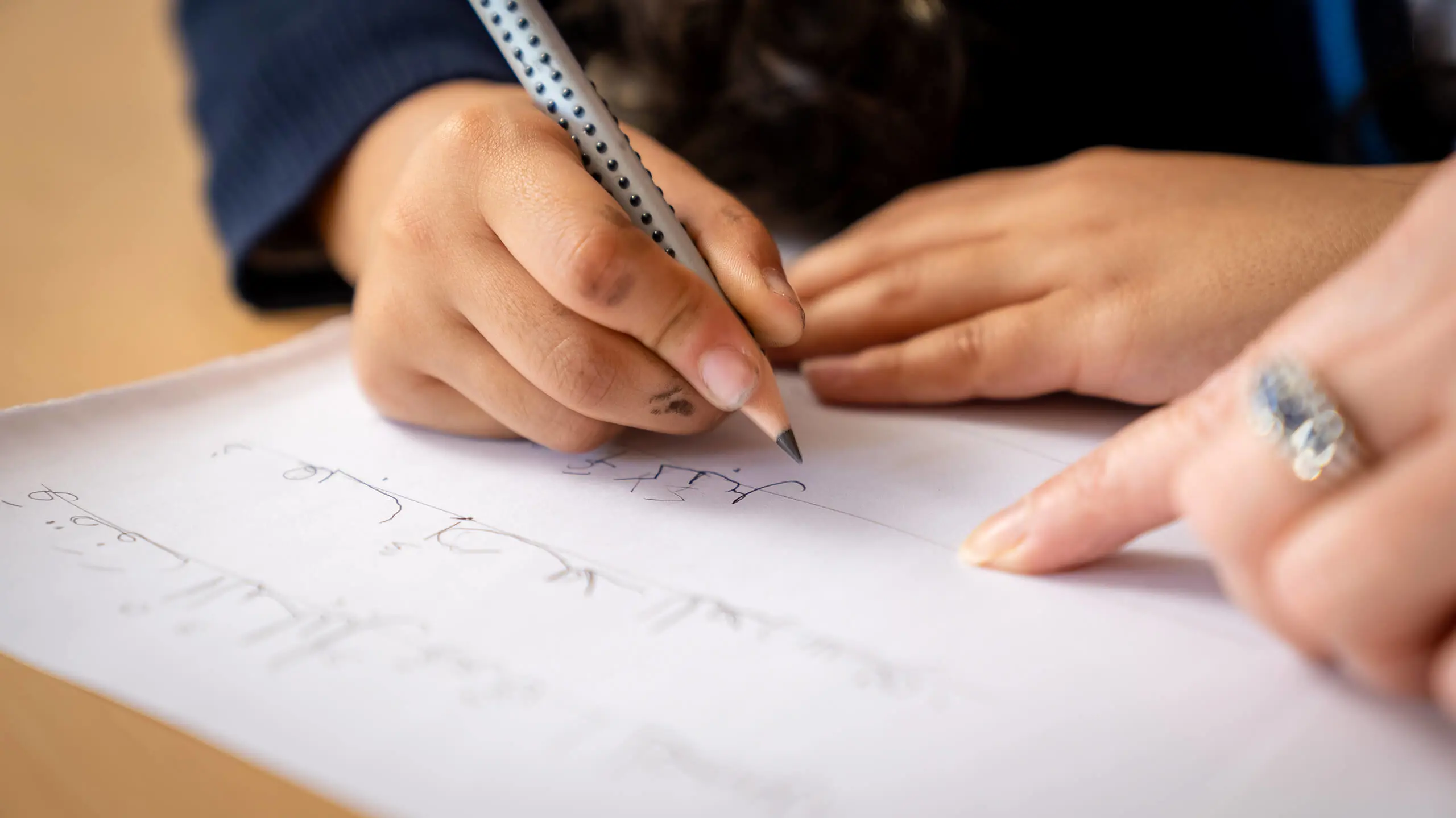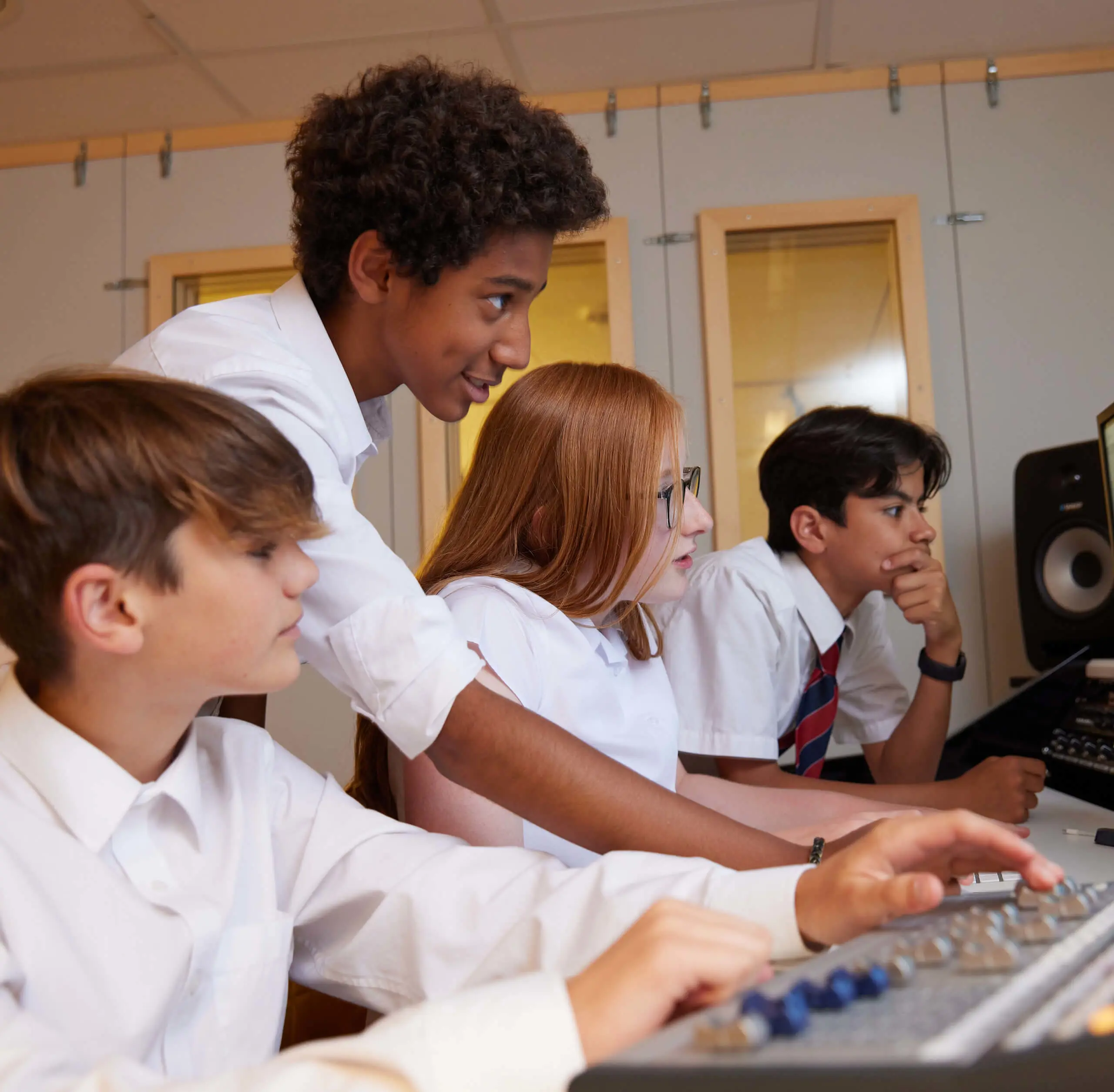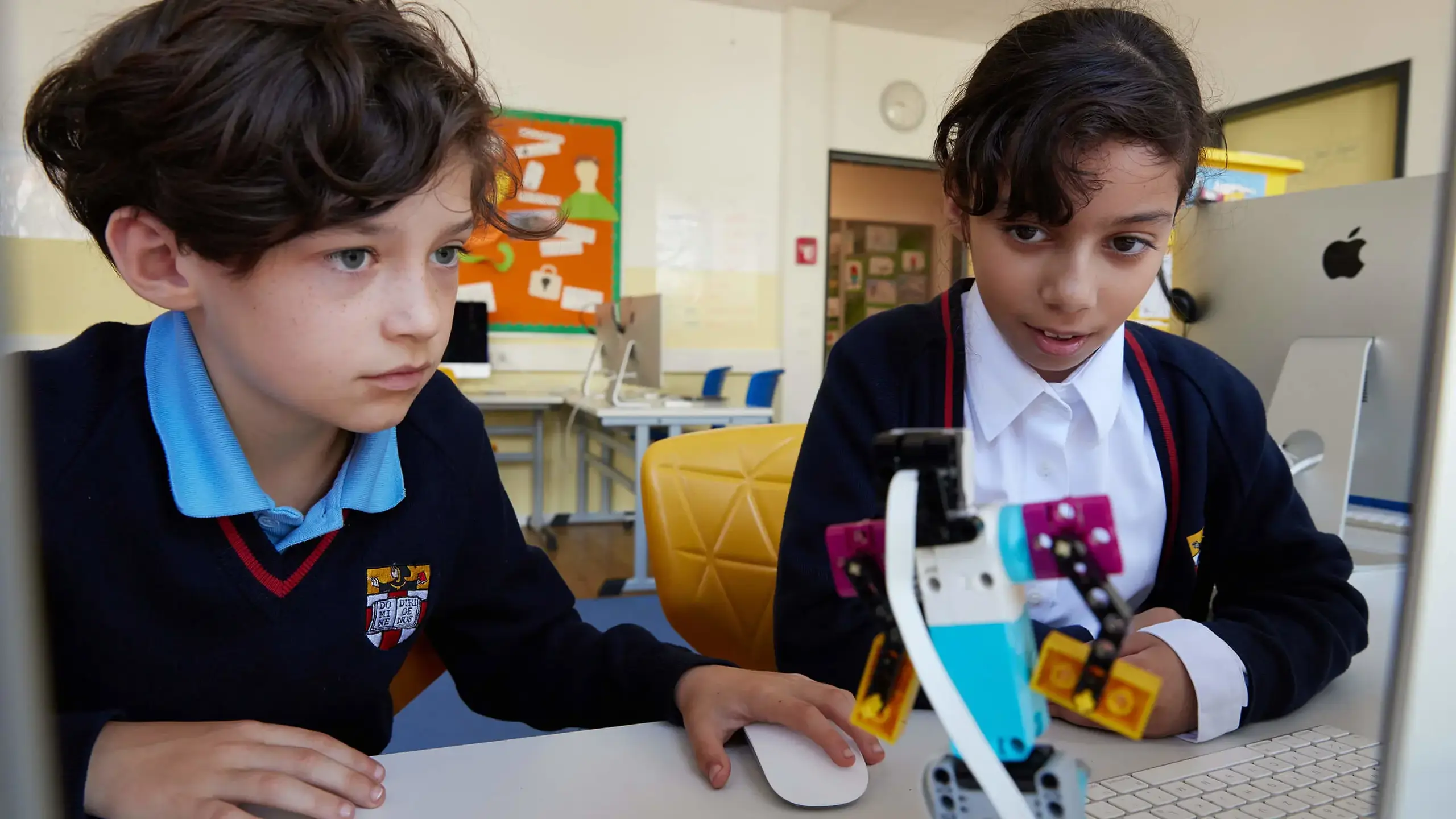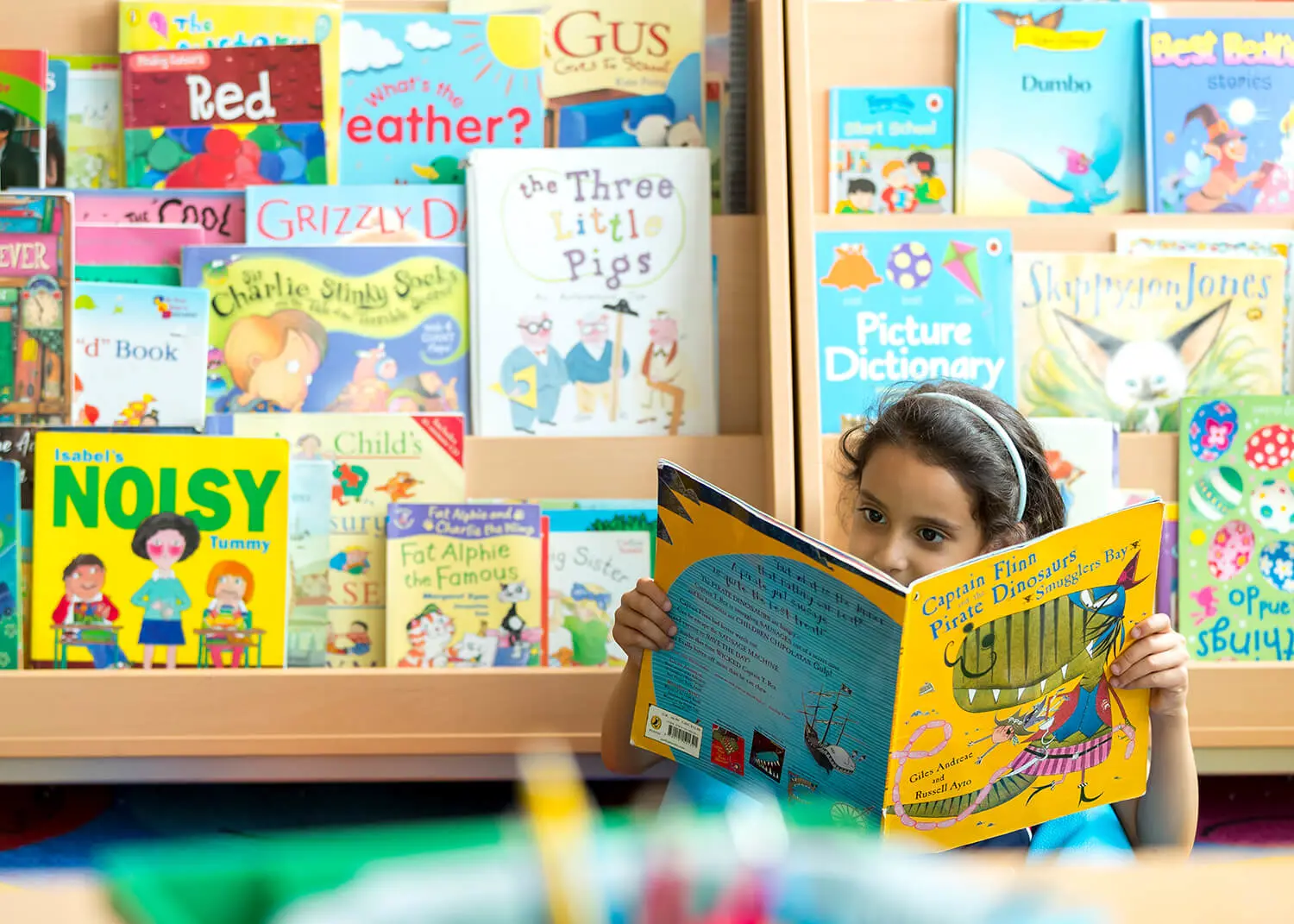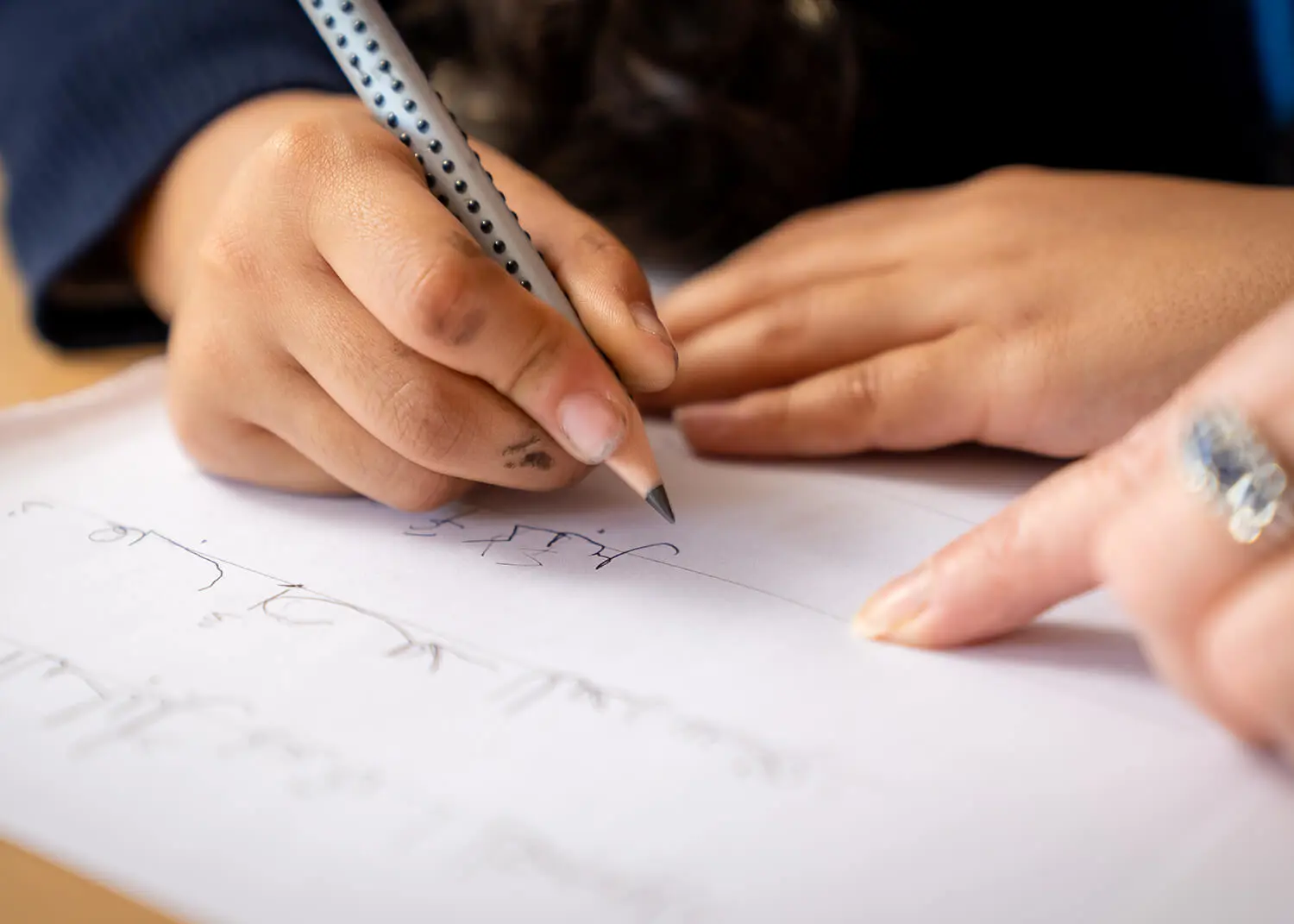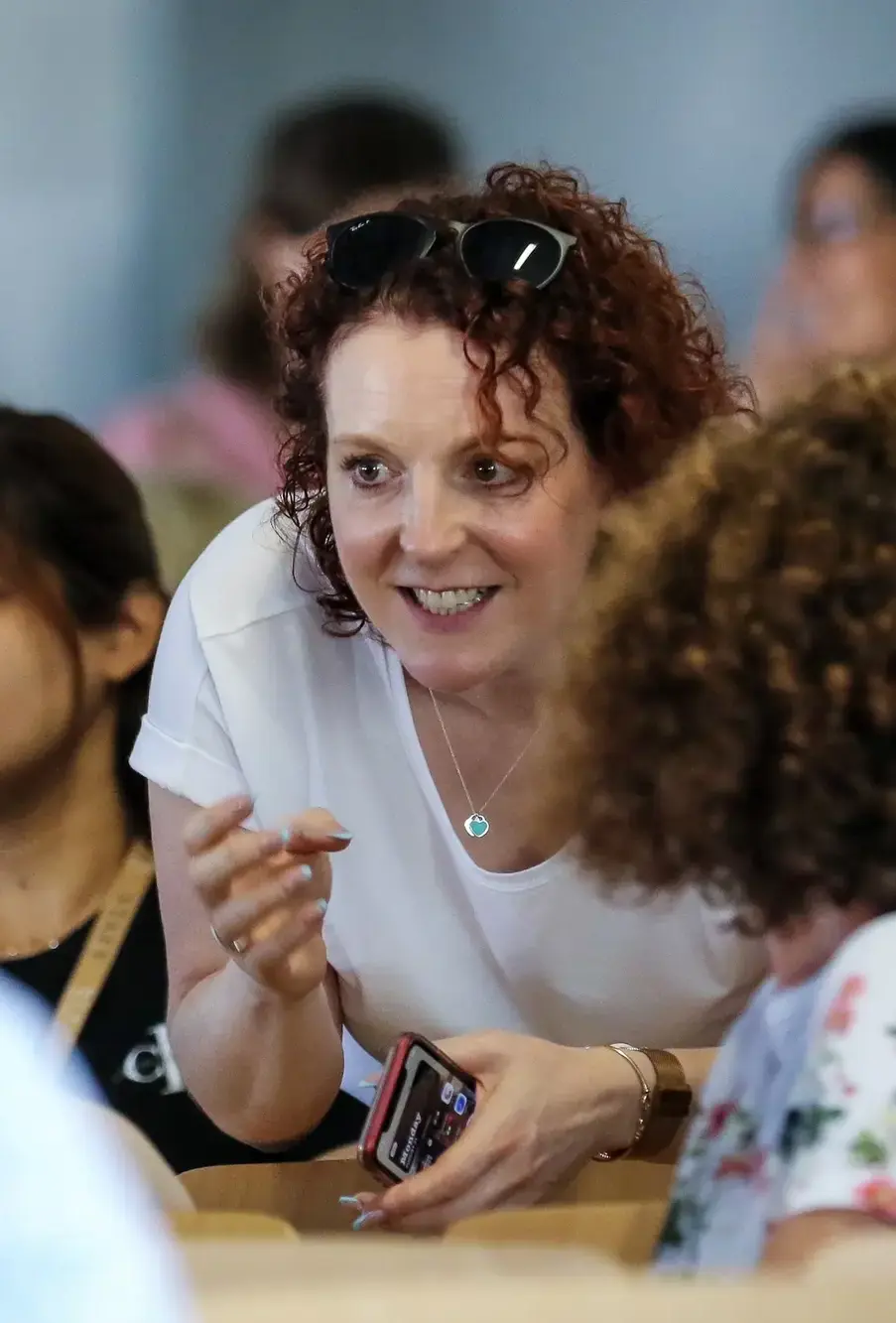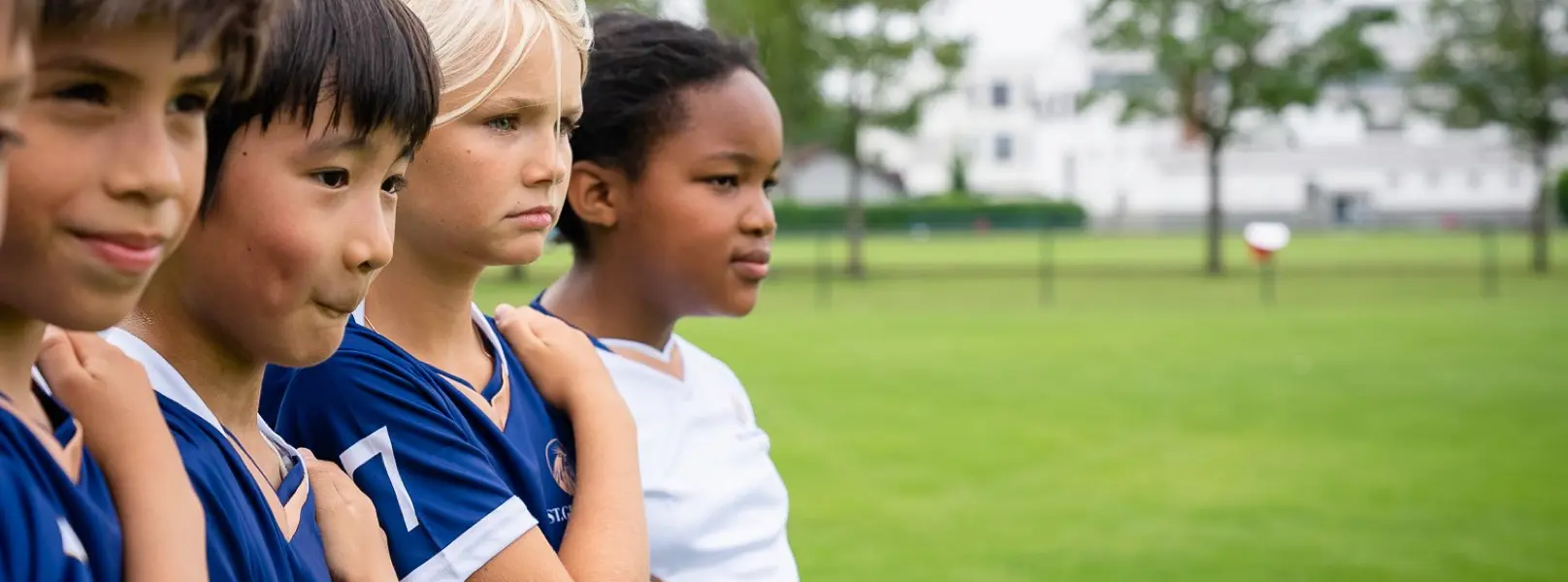Nurturing curiosity.
At St.George’s, Year One and Two follow the National Curriculum for England. At this age, children are encouraged to learn through a combination of independent, group and teacher-led activities.
In Year One and Two, we create opportunities for every child to enhance their social and emotional intelligence and focus on the importance of reading and learning. Children are encouraged to explore a wide array of stimuli and topics, fostering curiosity and a love for learning. Given our diverse student population, children have the opportunity to explore and appreciate cultures beyond their own. Starting from Year One, students start building the groundwork for strong friendships, social adeptness, and effective learning strategies that will support their social, emotional, and academic development throughout their lives.
Curriculum
The National Curriculum for England has been designed to encourage independence and enquiry, whilst retaining the emphasis on learning core facts and skills.
In Lower Primary, pupils engage in a wide range of subjects including English, Mathematics, Science, German, Personal, Social, and Health Education (PSHE), History, Geography, Art, Computing, Physical Education (PE), and Music. Alongside these core subjects, our educators implement a cross-curricular teaching approach to enhance student engagement, enjoyment, and understanding.
To further enrich the learning experience, specialist teachers in German, Physical Education, Art, Computing and Music collaborate with all students to ensure comprehensive skill development and refinement in these areas. The remaining core subjects are taught by the class teacher, fostering a cohesive and integrated learning environment.
German lessons are scheduled four times a week, providing students with consistent exposure and practice in the language. We customise our approach to German lessons by grouping children based on their proficiency in the language. Fluent speakers follow the local German curriculum, ensuring they are appropriately challenged. For learners of German as a foreign language, we provide lessons that consider their age and skill levels, promoting effective and targeted learning experiences.
Curriculum structure
In Year One, the curriculum is organised into topic-based units to integrate learning across subjects and connect various areas of study. Each classroom is equipped with evolving resources aligned with the topics introduced each half-term.
The topics serve as the core for learning in key subjects such as Mathematics, English, and thematic studies, and are also integrated into Art, Music, and computing activities. Meanwhile, German and Physical Education follow their own distinct curricula.
Specialist lessons in German, Physical Education, Computing, and Music are scheduled for a set amount of time each week. The remaining time is dedicated to focused input sessions on the topics. The schedule allows flexibility in delivering curriculum content and adapting learning experiences. While the overall topic is predetermined, students explore it in varied ways, with teachers ensuring coverage of all curriculum areas throughout the day. The topic-based approach, which mirrors aspects of the IB model, provides structure and flexibility, supporting individual progress through tailored differentiation.
The carefully designed classroom environment reinforces learning with complex resources and activities that build literacy and numeracy skills in a less formal setting. This approach maintains familiar routines while gradually introducing new elements, easing the transition to more formally structured learning in Year Two.
Homework and reading
As a full-day school, we prioritise providing children with time after school to explore diverse interests and engage in activities that further develop skills or enhance their overall wellbeing. We recognise the importance of maintaining a healthy balance between academic work and extracurricular pursuits, even at a young age.
Homework for students in Year One and Year Two is focused on two key areas: regular reading and half-termly ‘learning logs`. A "learning log" is an independent, research-based project completed outside of school, designed to support the child's self-directed development. Spanning over a week, learning logs offer the flexibility needed to accommodate the diverse schedules of modern families.
We emphasise the importance of reading for building vocabulary and knowledge, which serves as the foundation for future learning. Thus, we encourage students to engage in regular reading at home to enhance their confidence and fluency in this essential skill. Our students have access to age-appropriate books from a leveled reading scheme and are encouraged to explore a diverse selection of books available in the school library.
Assessment
We take a comprehensive approach to assessment, considering all types of evaluations when providing feedback to parents and making professional recommendations related to academic matters. The class teacher conducts continuous formative assessments, which provide ongoing insights into each student's progress. This assessment data is crucial in guiding teachers on how to effectively support each student's academic journey.
Parents are regularly informed about their child's progress throughout the school year. We issue two formal reports during the spring and summer terms, offering detailed insights into academic achievements and areas for improvement. Additionally, parents have the opportunity to meet formally with teachers during scheduled parents' evenings to discuss their child's progress, address any concerns, and collaborate on strategies for further success.
St.George's
unique education model
As an educational organisation we are pioneering in four key areas which are the pillars supporting our work as educators and employers, and informing our wider economic, social, and environmental responsibilities.


